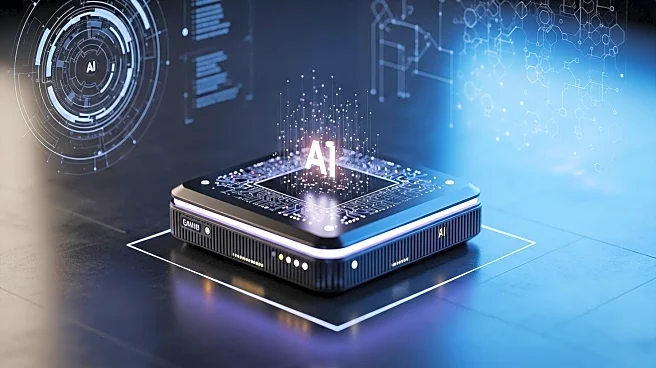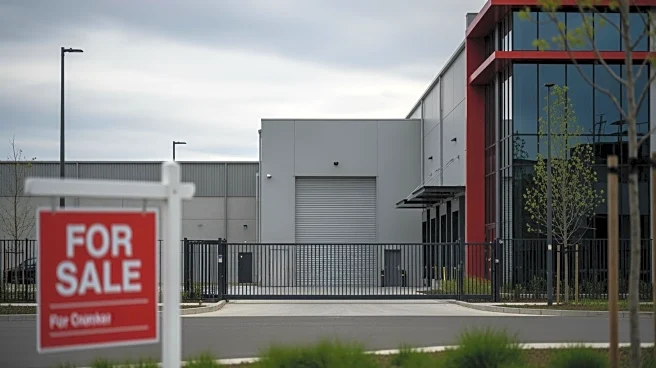What's Happening?
Naveen Rao, the former head of artificial intelligence at Databricks, is in the process of raising $1 billion for his new startup, Unconventional, Inc. The company aims to develop a novel type of computer that achieves 'Brain Scale Efficiency' without biological limitations. Andreessen Horowitz is leading the investment, with Lightspeed and Lux Capital also participating. Databricks, which acquired Rao's previous startup MosaicML for $1.3 billion in 2023, is reportedly investing as well. Rao has already secured hundreds of millions in funding and plans to continue raising capital in a 'tranched' round, allowing him to start building the company before the full funding is secured.
Why It's Important?
This development is significant as it positions Unconventional, Inc. to potentially compete with industry giants like Nvidia by creating a new AI machine with custom silicon chips and server infrastructure. The backing from prominent venture capital firms like Andreessen Horowitz underscores the confidence in Rao's vision and the potential impact on the AI hardware market. The startup's focus on efficiency and innovation could drive advancements in AI technology, influencing sectors reliant on AI for growth and development.
What's Next?
As Unconventional, Inc. progresses, the next steps involve completing the funding round and beginning the development of its AI hardware. The company's success could prompt reactions from established players in the AI hardware industry, potentially leading to increased competition and innovation. Stakeholders in the tech industry will likely monitor the startup's progress closely, given its ambitious goals and the high-profile backing it has received.
Beyond the Headlines
The emergence of Unconventional, Inc. highlights a broader trend of innovation in AI hardware, where efficiency and novel approaches are becoming increasingly important. This could lead to shifts in how AI systems are designed and deployed, impacting industries ranging from healthcare to finance. The ethical and practical implications of creating machines that mimic biological efficiency without biological constraints could also spark discussions on the future of AI and its role in society.









